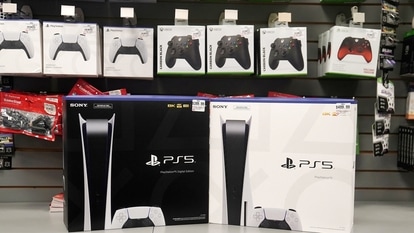Why are tablet sales falling?
The latest data and forecast from IDC shows that the demand for tablets is falling rapidly and that even the premium allure of iPad is diminished. IDC's figures suggest that 2014 will be the first time that the device that kick-started the tablet revolution sees a real yearlong decline in sales.
The latest data and forecast from IDC shows that the demand for tablets is falling rapidly and that even the premium allure of iPad is diminished. IDC's figures suggest that 2014 will be the first time that the device that kick-started the tablet revolution sees a real yearlong decline in sales.
Just a year ago, the market for tablets was enjoying a 52.5% jump in growth, but as this year ends, that growth has stalled at just 7.2% or 235.7 million devices, which, based on IDC's figures includes 2-in1 predominantly Windows devices.
But do the figures mean that consumers are falling out of love with tablets or simply that everyone who wanted a tablet now owns one? Or does a falling trend indicate that a new rising trend in mobile devices is developing?
When the iPad was launched back in 2010, it was an instant hit and because it was similar in many ways to a smartphone, there was a presumption that it would fall into a similar upgrade cycle -- a new slate every two-to-three years.
'What has played out instead is that many tablet owners are holding onto their devices for more than 3 years and in some instances more than 4 years. We believe the two major drivers for longer than expected tablet lifecycles are legacy software support for older products, especially within iOS, and the increased use of smartphones for a variety of computing tasks,' said Ryan Reith, Program Director with IDC's Worldwide Quarterly Mobile Device Trackers.
Added to this is the fact that smartphones are much bigger than they were back in 2010 -- four years on we're entering the dawn of the age of the phablet -- over 25% of smartphones shipped this year are going to have a 5-inch+ display, even Apple is getting in on the action with the iPhone 6 Plus.
All of which means that 2015 could be the year when companies, including Apple, are forced to reconsider their tablets to make them stand out against smartphones and other devices. Apple is widely tipped to unveil a 'pro' iPad with a 12-inch display and some sources suggest that it will also put the iPad Mini out to pasture rather than try to compete against larger smartphones.
Over on the Android side of the tablet divide, Lenovo is doing some interesting things such as integrating projectors and 4K ultra-high definition displays into its latest offerings to improve their entertainment capabilities.
However what IDC's data also shows is that, for the moment at least, consumers are still cold on Windows-powered 2-in-1 devices. Shipments are only expected to total 8.7 million units in 2014, which is just 4% of the total tablet plus 2-in-1 market.
'We need to look at how the tablet ecosystem is answering these challenges, and right now we see a lot of pressure on tablet prices and an influx of entry-level products, which ultimately serves Android really well,' said Jean Philippe Bouchard, Research Director for Tablets. 'But we also see tablet manufacturers trying to offset this price pressure by focusing on larger screens and cellular-enabled tablets. The next six months should be really interesting.'
Catch all the Latest Tech News, Mobile News, Laptop News, Gaming news, Wearables News , How To News, also keep up with us on Whatsapp channel,Twitter, Facebook, Google News, and Instagram. For our latest videos, subscribe to our YouTube channel.


























